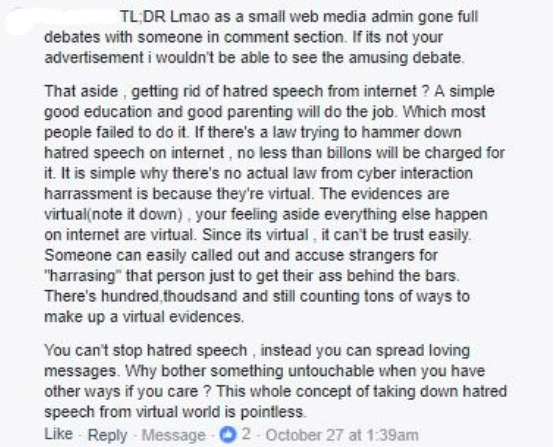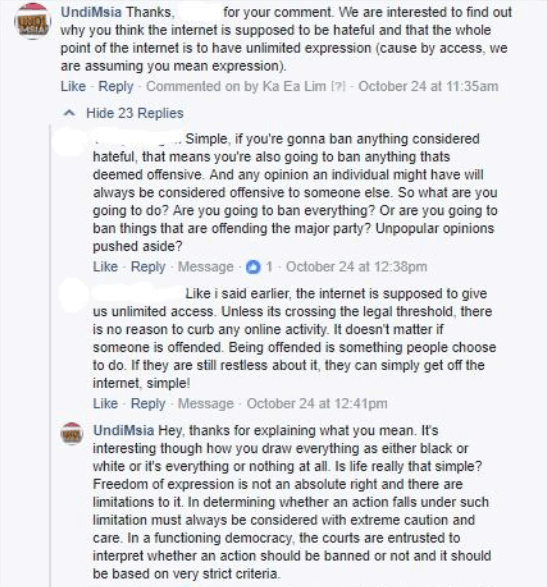
Cyber harassment in Malaysia has become rife in recent years. There are 2,333 reported cases which happened over the course of five years and it was reported that cyber harassment is the third most dangerous threats after fraud and intrusion according to Cybersecurity Malaysia.
In a survey carried out by PeopleACT, more than half of the respondents (50.4 percent) have experienced one form of online harassment at least once in their life. Women suffered online sexual harassment (20.9 percent) at least two times more than men (9.8 percent). Women also experienced online death or rape threats (4.8 percent) and stalking (16.4 percent) more than men (3.3 percent and 13.1 percent respectively).
The results do not stop here. In Malaysia, cyber threats and invasion of privacy have emerged against users who either expressed sensitive views or who are vilified if they committed a wrong.
In a 2014 case, a young woman caught on video hitting the car of an elderly man after an accident was criticized on social media with her identity, car registration number and other private information exposed for the purpose of finding her and harassing her should they find her. In 2015, a radio presenter who questioned hudud law in Kelantan in a YouTube video received threats and her photo shared widely on social media along with vile comments.
Social activist Syed Azmi Alhabshi who organised a dog familiarisation event in 2014 also received death threats and nasty messages online
Laws In Malaysia About Cyber-harassment?
There is no legal definition or law to protect victims against cyber harassment. For example, the Communications and Multimedia Act says that any comment that is malicious, or which is annoying or insulting, is potentially an offence.
It is therefore vague and up to the interpretation of the judge, since there is no definition. Even though PDRM has accepted that offline and online death / rape threat is covered under the Penal Code as long as there is threats being made, the laws must be specific to address cyber-harassment and other forms of harmful cyber behavior including these five types of harassment: hateful comment, sexual harassment, obscenity, death and rape threats and invasion of privacy.
The Real Issue
The current issue is that many people have experienced or witnessed online harassment — but few seem to agree on what online harassment actually is, or even think that online threats should not be taken seriously.
It is assumed that what happens online is not going to hurt you physically because you don’t have that physical interaction with your harasser, as sexual harassment mostly affects women, and people view it as a women’s issue.
What do some people in Malaysia think of Online Harassment?
John: “There’s no actual law from cyber interaction harassment is because they’re virtual.”

Zakaria: Cyberharassment. The best way to deal with it is to ignore it.”
Thisya: The whole point of the internet, unlimited access, unless it is involved in criminal activity.

Should the internet give us unlimited expression?

For cases of cyber harassment, victims often feel that there is no significant loss (usually in monetary terms) to warrant the hassle of lodging a report.
Many countries have laws intended to prosecute those who engage in harassment, but such laws often go unenforced. All over the world, law enforcement is often dismissive of complaints about harassment that occurs solely online. Can this issue be tackled by legislation in Malaysia?